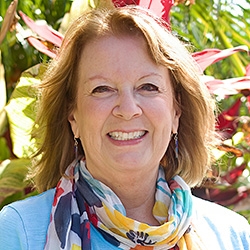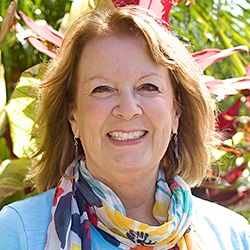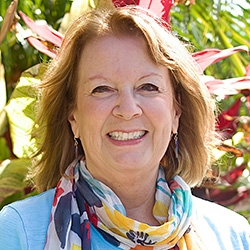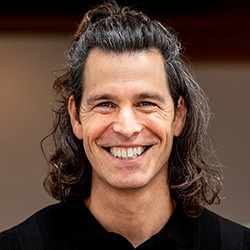
NVC Resources on Connection
-

Recovering from Reactivity Series
Taking a Step Back
Join Jim and Jori Manske in a thought experiment exercise designed to help us become more aware of our conditioning, allowing us to make more conscious and connected choices in the face of conflict.
-
This session is from the NVC Academy's 2017 Telethon. Listen in as Mary offers two experiential self-empathy exercises: I Love It When, and What Do I Want / Why Do I Want It. Deepen your ability to connect with self — novel and effective ways to engage the process of Self-Empathy!
-
How we choose to communicate can either open or shut down connection. We express ourselves through our bodies, so no matter how ‘nicely’ we offer words, if they are not aligned with our energy, they won’t be congruent. This session will offer simple yet powerful tools to connect to your needs and others' needs, allowing more authentic words that are imbued with care.
-
Trainer Tip: Without knowing our feelings, its harder to live fully present, take care of ourselves, and make sound decisions. If its difficult for you to know what you feel and to express your feelings, consider reviewing a list of feelings, practice expanding your feelings vocabulary, and naming your feelings.
-

Parenting and Anger
Walking the Ultimate Path to Peace (5 Session Course)
John and Stephanie combine mediating conflict, parenting and study of brain science to this ground-breaking course recording on how to funnel your anger and your child’s anger toward mutual caring and peace.
-
Trainer Tip: If we're deflecting an appreciation or letting it expand our ego, we're missing a chance to truly connect to what's important. A more satisfying way to receive appreciation is to connect to how we've contributed to another person’s life, rather than our own.
-
Reducing overwhelm requires you to reconnect with your authentic choice, be present and compassionate with what's happening, heal trauma, and interrupt the trauma response. Read on for ways that may help you reconnect with your choice, presence and more on trauma.
-
In listening to what our emotions tell us, and embracing what we do not know, we begin the path of courage. Even though our culture tells us not to, revealing our imperfections is where we can deeply connect. Living our lives more courageously honest, can shift us towards inspiring one another. Read on for how some people experienced this in coming together to transform one woman's heroine addiction.
-
Amidst the Israel/Palestine war we see polarizing media portrayals and the battle for public opinion. Read how one person shares his deep, personal connections to the Israel/Palestine conflict, expresses the trauma and viewpoints of both Palestinian and Israeli experiences -- in a way that aims to transcend polarizations, hold compassion, and understand the complexity on both sides. Despite the immense challenge that defies easy resolution, he holds hope, noting historical reconciliations such as the ones between Germans and Jews.
-
Control may help us feel safe in an unpredictable, unsafe, wild world. Wanting control may be a response to shielding ourselves from feeling fear and being aware of our vulnerability. The more we insulate from fear, discomfort, and vulnerability, the more we are cut off from aliveness; we can become more anxious, and depressed. The more we control the more we are disconnected from empathy and care. With aliveness come joy, peace, love, awe.









